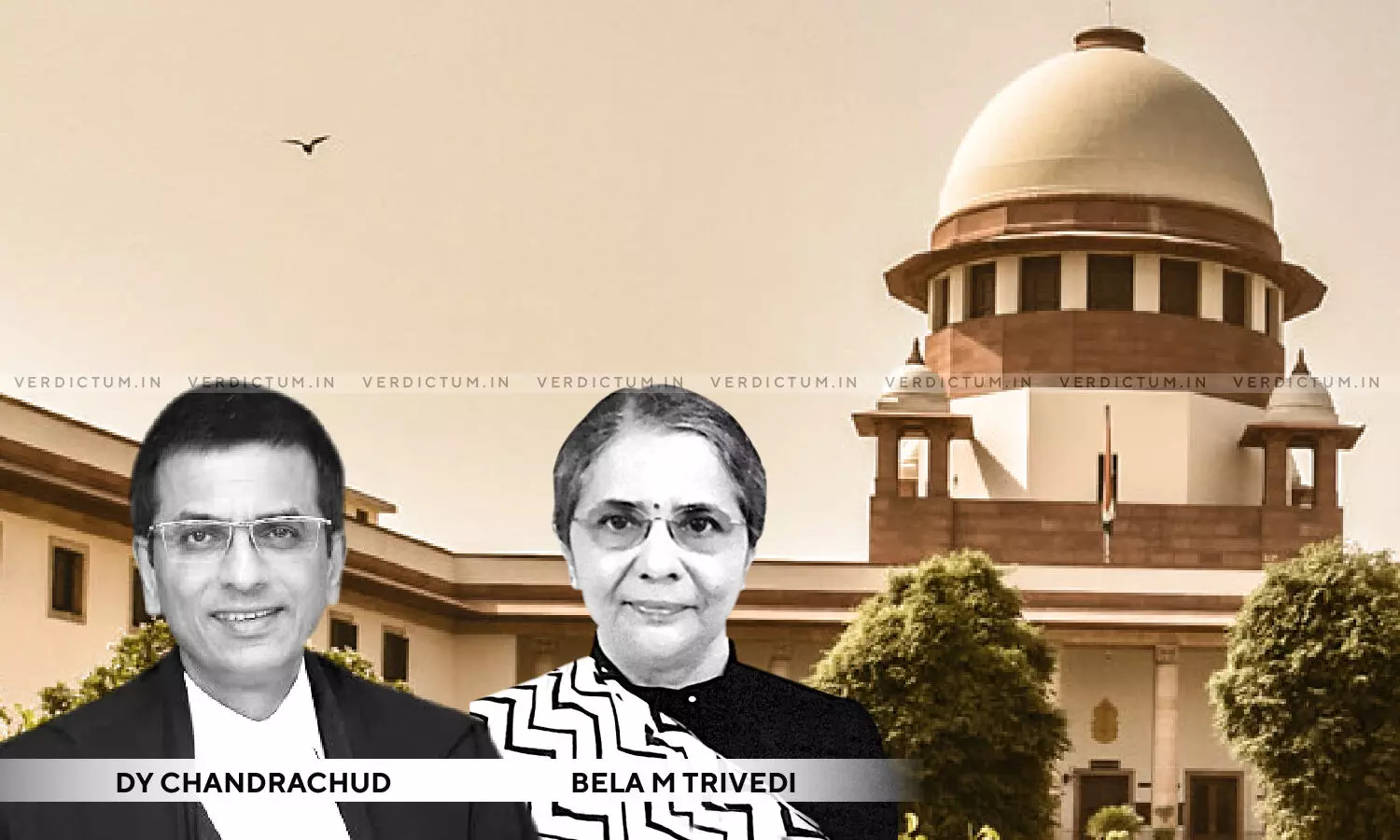
Showing Undue Favour To Party Under Guise Of Passing Judicial Orders Is Worst Kind Of Judicial Dishonesty - SC
 |
|A Supreme Court Bench of Justice Dhananjaya Y. Chandrachud and Justice Bela M Trivedi upheld a judgment passed by the Allahabad High Court regarding the disciplinary proceedings against an ex-judicial officer.
The Bench opined that showing undue favour to a party under the guise of passing judicial orders is the worst kind of judicial dishonesty, and to that end said that "A judge must decide the case on the basis of the facts on record and the law applicable to the case. If he decides a case for extraneous reasons, then he is not performing his duties in accordance with law. As often quoted, a judge, like Caesar's wife, must be above suspicion."
Senior Advocate Mr Pradeep Kant appeared on behalf of the Appellant and Ms Charu Ambwani appeared on behalf of the Respondent side before the Apex Court.
The Appellant was a Judicial Member of Central Administrative Tribunal, after seeking voluntary retirement from the Judicial Services. Shortly after joining the Tribunal, he was informed that the High Court had initiated a departmental inquiry against him. There were 12 charges against him, and it was alleged that while he was posted as an Additional District Judge, he had decided a batch of matters under the Land Acquisition Act, 1894 and had awarded enhanced compensation which was multiple times more than the investments made by the subsequent purchasers of the acquired lands. To that end, it was alleged that the Appellant had committed a misconduct within the meaning of Rule-3 of U.P. Govt. Servants Conduct Rules, 1956.
Based on a report submitted by the Enquiry Officer, the High Court resolved to punish the Appellant with curtailment of 90% of his pensionary benefits with immediate effect. This was sanctioned by the State and the order was passed. Aggrieved, the Appellant filed a Writ before the Division Bench of the High Court, and the High Court found that the punishment order in reference to the charge nos. 1 to 3 was not sustainable in the eye of law. Considering the overall circumstances, the High Court reduced the curtailment of pensionary benefits to the extent of 70%.
The Appellant then approached the Supreme Court.
The Counsel appearing on behalf of the Appellant contended that the charges did not make out even a prima facie case of misconduct. Further, the Counsel also argued that many cases where the enhanced compensation awarded by the Appellant were upheld by the High Court and the Supreme Court, and therefore, it could not be alleged that the Appellant was actuated by extraneous consideration. The Counsel also argued that there was no specific charge against the Appellant for taking bribe or showing any undue favour to any person or group of persons, and merely because an enhanced compensation was awarded, inference of extraneous consideration should not be drawn.
The Counsel appearing on behalf of the Respondents' side argued that the Appellant was given full and fair opportunity during the enquiry proceedings conducted against him and the decision was taken by the full Court of the High Court after considering the entire material on record. She also argued that strict rules of evidence do not apply to the departmental inquiry.
The Supreme Court opined that if an inquiry has been fairly and properly conducted, and the findings are based on evidence, the adequacy of the evidence or reliability of evidence would not be a ground to interfere with the findings recorded in the departmental enquiries.
The Court held that since the Appellant did not make any contentions regarding the violation of the principles of natural justice or the contravention of any statutory rules or regulations, the subjective satisfaction arrived at by the High Court on the administrative side, and the impugned order passed by the High Court on the judicial side did not warrant any interference.
Further, the Court observed that the cases decided by the Appellant were found to be in flagrant violation of the cardinal principles of law and equity, and against all judicial norms and propriety, with a view to unduly favour subsequent purchasers who had no legal right to receive the compensation.
To that end, the Apex Court held that "the appellant was found to have conducted the proceedings in the manner which had reflected on his reputation and integrity. There was enough evidence and material to show that the appellant had misconducted himself while discharging his duties as a judicial officer, and had passed the judicial orders in utter disregard of the specific provisions of law, to unduly favour the subsequent purchasers of the acquired lands who had no right to claim compensation, and that such orders were actuated by corrupt motive. Under the circumstances, the High Court was perfectly justified in exercising its supervisory jurisdiction under Article 235 of the Constitution."
Opining that showing undue favour to a party under the guise of passing judicial orders is the worst kind of judicial dishonesty and misconduct, the Court dismissed the appeal.
Click here to read/download the Judgment